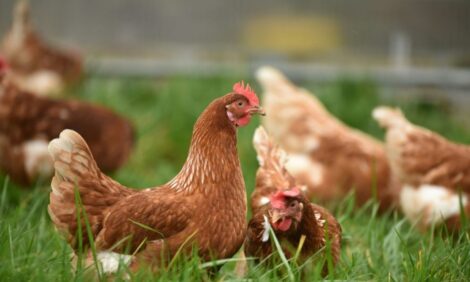



The Colombian egg consumption miracle
From 128 to 345 per capita egg consumption in 30 yearsGonzalo Moreno is the executive president of the National Federation of Poultry Producers of Colombia (FENAVI). During a Hy-Line sponsored webinar, Moreno detailed Colombia's rise in egg consumption from 128 to 345 per capita over 30 years’ time. Moreno emphasized the importance of sanitary measures, sustainability and effective marketing to boost global egg consumption.
Colombia produces 18 billion eggs annually and is one of the top per capita egg consumers in the world. Colombia has a population of 51 million people and there are roughly 7.5 million hens a year in production or starting production.
Start with sanitary production
“In order to sell more eggs, we need to produce more eggs. To produce more eggs, we need to be more efficient with our sanitary practices,” Moreno said.
In 2021 Colombia had its first case of avian influenza, with 66 outbreaks in backyard chickens and wild birds, but it never got into any commercial farms. It was a huge effort made by the poultry industry along with the sanitary authorities.
“We need to control all poultry diseases to increase production. We were able to eradicate Newcastle in 2021,” he added.
Step number one to increase egg consumption is getting the sanitary conditions in order, so consumers trust that eggs are safe to eat and are a quality product.
Sustainability program
In 2017 Colombia started a sustainability program, needing to become efficient, since all the poultry feed is imported. The poultry industry (broilers and layers) imports 7 million tons of corn every year. Producers have learned to not waste any feed. A chicken eats roughly 220 grams of feed a day and it drinks 240 milliliters of water. The poultry industry created a sustainability roadmap in 2018 and in 2019 the environmental program was created. The sustainability program focuses on water and manure management. Colombian poultry producers have become experts in harvesting rainwater and give their flocks high quality water. Today, 65% of the commercial birds in the country drink rainwater.
In 2022, Colombia created the first sustainability seal in the world for the poultry sector. The poultry sustainability seal is awarded by a third party, is obtained voluntarily and can be used for poultry products that comply with requirements in environmental, social and corporate governance. These include animal welfare, biosecurity, safety, resource consumption, community relations, social responsibility and labor welfare.
Marketing: Focus on nutrition
The key to the egg industry’s marketing success was the creation of a checkoff program in 1994, which funds the Colombian poultry sector through contributions from each of the 45 layer and broiler hatcheries in the country. It is a checkoff system like those in the US or Europe. In 1994 Colombia produced roughly 400,000 tons of chicken, and 6 billion eggs. In 2024 Colombia will produce over 1.8 million tons of chicken and 18 billion eggs.
The checkoff allows the poultry industry to run promotional campaigns, which highlight eggs as a complete food. Eggs are not only healthy, but also versatile, and can be prepared in different ways. “We emphasize nutrition. We don't sell eggs, we sell nutrition. We give nutrition to the people of the country,” Moreno noted.
Currently, 53% of Colombians buy their food at mom-and-pop stores, but that figure was 73% in 2023. Consumers are moving to supermarkets (19.5%) and hard discount stores (14.8%). Only 1% of eggs are sold with a trademark, which includes free-range eggs.
Promotional campaigns emphasize the importance of eggs for children. The poultry federation made a cartoon series with eggs as superheroes Each hero has an egg superpower: better vision, strength, helps concentration, etc. Kids love these cartoons.
A campaign that is currently underway in Colombia is the first one in the world where producers will donate a million eggs to children over a year. This is not a checkoff campaign, but rather is funded by the egg producers themselves.
“But it's something important, because next year we are going to grow roughly 6.5% in egg production. So, we must run a lot of campaigns to increase egg consumption,” Moreno emphasized.
“We need to continue to raise awareness of how good eggs are and that they're affordable. It's really such a great superfood, and it's economically accessible to most people,” he concluded.









